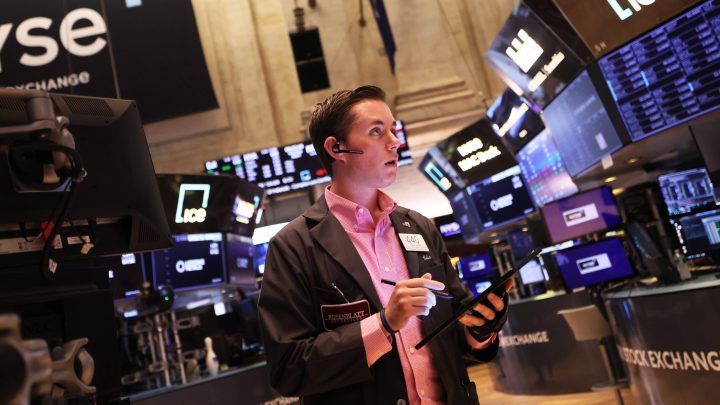
Leading economic indicators stubbornly point to a recession. It still hasn’t arrived.
Leading economic indicators stubbornly point to a recession. It still hasn’t arrived.

This week has been marked by a raft of good economic news: Retailers are selling a whole lot of stuff to consumers, builders are starting a whole bunch of new houses and unemployment claims are falling.
But on Thursday, we got a data point — actually, it’s 10 data points crunched down to a single index — that isn’t so encouraging: The Conference Board’s monthly Index of Leading Economic Indicators, or LEI. LEI was down in July. As it was in June, May, April — going all the way back to April of last year.
Leading economic indicators pointing negative month after month is a strong predictor of a recession. So is one on the horizon?
The LEI tracks 10 forward-looking measures, including permits for future home construction; stocks, which anticipate future earnings; and upcoming orders for manufactured goods.
“Basically what it does: It tells us where the economy is heading in the near term,” said economist Justyna Zabinska-La Monica at The Conference Board.
And where it’s heading is down, she said. “Sixteen months of declines is pretty significant, considering that the last time we’ve seen it was before the 2008 Great Recession.”
She added this caveat about her own index’s predictive power right now, though. “It’s been for a while that the LEI has been lighting up the red light and saying something is on the horizon,” she said. “However, we’re still seeing those declines not bringing a recession.”
“If this recession happens, it will be the most predicted recession — like, ever,” said former Federal Reserve economist Claudia Sahm.
The leading indicators have been a good predictor of past recessions. But the economy has been full of recession signals as it moves out of the pandemic, with no recession arriving. For instance, gross domestic product falling for two quarters last year.
“That’s also the case if you look at the sentiment measures, the yield curve,” said Sahm.
That yield curve, which compares short-term bond yields to long-term bond yields, is inverted right now. That means two-year yields, for instance, are higher than those for 10-year debt, which, historically speaking, is unusual. Lower yields imply a less vibrant economy, so the inverted curve signals weakness down the road.
And it is predictive, up to a point, said Eric Freedman at U.S. Bank.
“There’s this adage on Wall Street that yield-curve inversions have predicted eight of the last five recessions,” he said.
For her part, The Conference Board’s Justyna Zabinska-La Monica is cautiously sticking with her prediction. “A very shallow and short recession coming in the fourth quarter, going to the beginning of 2024.”
“Shallow and short.” In a world of unpredictable economics, let’s hope that one turns out just like it sounds.
There’s a lot happening in the world. Through it all, Marketplace is here for you.
You rely on Marketplace to break down the world’s events and tell you how it affects you in a fact-based, approachable way. We rely on your financial support to keep making that possible.
Your donation today powers the independent journalism that you rely on. For just $5/month, you can help sustain Marketplace so we can keep reporting on the things that matter to you.

















